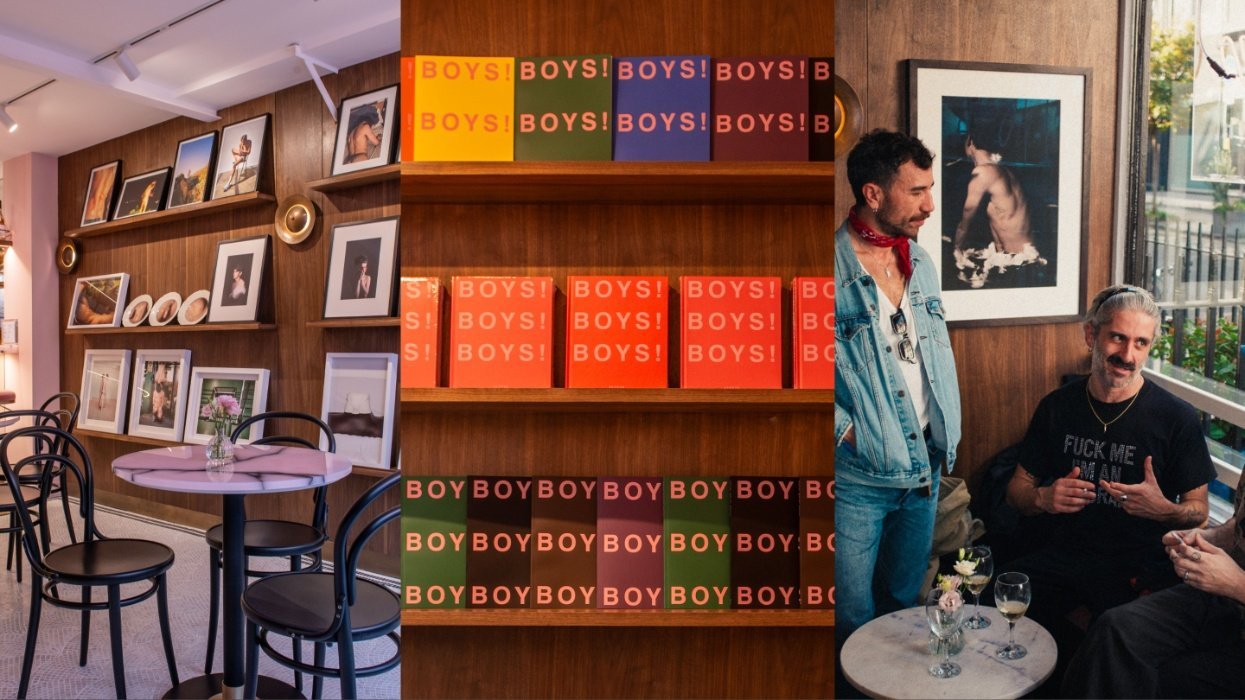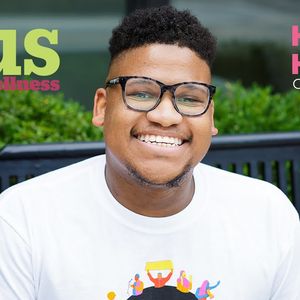B. Scott is many things: a prolific blogger, a columnist, an experienced fashion correspondent, a multiplatform media maven, and TV, radio, and Web personality, a proud member of the black gay community, and an out transgender person.
That last label is one Scott has only recently donned, and he's still getting used to how it feels. But as with everything else in his life, Scott proudly wears the identity, and looks damn fine doing it.
Scott, who was assigned male at birth and prefers masculine pronouns, says his journey to accepting himself as a transgender person was a long one.
"I've always felt like I was somewhere in between," Scott says of his gender. "Even when I was younger, when I used to watch Tarzan, I just kind of imagined I was Jane. I don't know what all that meant, but I've always felt like my spirit was somewhere in between."
Occupying that in-between space can be tricky, though, especially when in front of a camera or dealing with straitlaced media executives. Scott received a crash course in the strict gender policing that happens in mainstream media when he was physically pulled off the red carpet for the June 30 BET Awards after producers decided his attire was too feminine.
For the record, Scott maintains he'd received explicit approval from the show's handlers and producers regarding the exact outfit he wore: loose black pants, a sleeveless top with a flowing navy tunic, and mid-height heels.
Scott was slated to be an anchor for the 106 & Park BET Awards Pre-Show as its sole style stage correspondent, with at least 12 one-on-one interview segments scheduled. But after just one interview and in the middle of another, on live television, BET handlers pulled Scott off the red carpet and told him his appearance "wasn't unacceptable," and if he wanted to continue on the air, he'd have to change into more masculine attire -- something that fit BET's idea of what a black man should wear on the red carpet.
"I needed to pull my hair back, mute my makeup, change into solely men's clothing, and take off my heels and put on flats," Scott recalls being told. "That to me was just so shocking, it was like, 'You're not accepted. We do not approve of you.' It made me feel less than, it made me feel like something was wrong with me."
Not wanting to miss an important professional opportunity -- Scott calls the BET Awards "the black Super Bowl" and notes that millions of his peers and community members were watching the show -- Scott complied with the request. He pulled his flowing hair back into a ponytail, took off his makeup, and changed into fitted black pants with a black top and navy blazer, then completed the ensemble with a pair of blue loafers. See both his looks side by side here.
By the time Scott had completed the wardrobe change, BET handlers told him he wouldn't be able to participate as the pre-show's sole host as planned, so he was added back on-camera as a cohost with his replacement near the end of the program.
"It was a big moment for me," Scott says. "It was one of the biggest moments of my career, and [BET] embarrassed me."
While B. Scott is many things, he is not a shrinking violet. Unwilling to take BET's gender policing lying down, Scott lawyered up and filed a multimillion-dollar lawsuit alleging that BET and its parent company, Viacom, discriminated against Scott because of his gender identity. The suit also contends that BET wrongfully terminated Scott's employment, amounting to a breach of contract, intentionally inflicted emotional distress upon Scott, and violated his rights as protected under California's Unruh Civil Rights Act.
That lawsuit was one of the first times Scott publicly used the word "transgender" to describe himself.
 While BET did not comment for this story, the company did issue a public statement shortly after Scott filed suit. The network called its statement an "apology," but Scott doesn't buy it.
While BET did not comment for this story, the company did issue a public statement shortly after Scott filed suit. The network called its statement an "apology," but Scott doesn't buy it.
Calling the incident "a series of unfortunate miscommunications between both parties," BET says it regrets any "unintentional offense to B. Scott and anyone within the LGBT community." The network closes by promising it seeks "to continue embracing all gender expressions."
Scott's suit makes numerous mentions of the fact that BET executives were highly familiar with Scott's gender-nonconforming style, noting that he'd appeared on two prior episodes of 106 & Park. In fact, the suit contends, Scott's genre-defying fashion was one of the reasons he was pegged as a good fit for the style stage correspondent in the first place.
Although the lawsuit is still pending and won't have a verdict in the immediate future, public reaction to Scott's treatment at the BET Awards -- which he blogged about in detail on his well-read site LoveBScott.com -- was swift, and not always kind.
Headlines on some LGBT and media blogs blasted what others saw as Scott's overnight adoption of the transgender label. One post by fellow transgender blogger Monica Roberts asked if Scott was "genuinely embracing the trans umbrella." Roberts, herself a prolific and acclaimed trans woman of color, lobbed this tweet at Scott shortly after he announced his lawsuit:
"When B Scott starts taking hormones and calling himself Brittany (or another femme name starting with 'B') and declares he's transitioning then I'll consider him part of Team Trans."
Scott says that kind of criticism, especially from LGBT people and other people of color, stung. Scott was particularly struck by the allegations that he'd adopted the transgender label primarily because it added weight to his lawsuit.
Calling those allegations "delusional," Scott fervently denies the lawsuit prompted him to claim his identity.
"There's no way that I would ever claim that I was a transgender person, if it was not [true]," says Scott, citing the staggering number of transgender people of color who are brutally beaten and murdered every year abroad and right here in the U.S. "No amount of money would be worth me putting my life at risk. ... I'm not doing this for the money, I'm doing this for the people who don't have the voice, the people who are not supported, the people who can't push back like I've pushed back."
That's not to say that the incident with BET didn't shed some light on Scott's identity.
"This situation did allow me to educate myself to the point where I realized that I was included in the definition," Scott says, citing GLAAD's definition of transgender, which says the word is an umbrella term to describe those whose gender identity doesn't correspond with the sex they were assigned at birth. GLAAD notes that transgender people might identify as male, female, neither, both, or a host of other identities.
That's when the light bulb went off for Scott.
"I didn't know that the 'both or neither' was in that term," Scott acknowledges. "I thought it was just a man or a woman who did not identify with their assigned, born sex. And I personally was uneducated to think that [being trans] only meant that you had to be transitioning."
And while many transgender people do seek a social and clinical transition, there are just as many who chose not to, or lack the resources and privilege to access hormone therapy and surgeries that are rarely covered by insurance.
But that doesn't stop some even inside the trans community from policing their own, and decreeing that their own experience is the only "right" way to be trans.

Scott worries about the implications this binary, transition-based narrative has on gender-nonconforming people of all ages. Noting that he's received grateful emails, tweets, and Facebook messages from fans relieved to be able to "say I'm like B. Scott," he's concerned the singular focus on transition doesn't create space for the diversity that exists within any group.
"Because of that pressure, there could be people like me, who are somewhere in between... [who] feel like, well, they only know transgender to be a certain thing," hypothesizes Scott. "Then they transition, because that's what they think they have to do in order to be what everybody puts out there."
But Scott has never been one to be defined by others' expectations. In fact, he finds challenging assumptions to be powerful -- a theme he explored in a wide-ranging interview with fellow trans activist Janet Mock last month.
"[Folks] remember people who challenge their thought process, or their labels, or what they're comfortable with," Scott tells The Advocate. "And so I'm going to use that power to educate them about people like me. I want to use that power to show other people like me that they have that power too. And we can use it for good."
Even in this conversation, Scott challenges several established binary traditions. He uses male pronouns and intentionally labels himself a transgender person, not a trans man or a trans woman. When asked about his sexual orientation, Scott first confirms that it's an entirely distinct aspect from his gender identity.
"Yes, I am a transgender person," he says. "And yes, I am so gay! I love it -- I'll shout it from the rooftops! And it won't change. It's my truth. It's who I am, it's my essence."
"I feel that being a transgender person is more of a descriptor of me than my sexual orientation," continues Scott. "Because transgender really covers my gender expression -- it covers what I choose to wear, how I choose to do my hair and my makeup, and even down to my mannerisms. I feel like my mannerisms are somewhere between what is stereotypically male and feminine. ... And for the first time, I feel like I've found a term that, if I am to be labeled, this is the term that best identifies me."
With that mentality, Scott has added a new label to his ever-stylish wardrobe. These days, he's not only a television, radio, and Internet personality, an entrepreneur, a gay person of color originally from the American South -- with a degree in chemistry and psychology from the University of North Carolina, Chapel Hill -- he's also an outspoken advocate for the transgender community. He's a staunch supporter of individuality and cohesive, supportive community. But most of all, he's a fierce advocate for everyone who wants to live their truth, despite the restrictions others try to force upon them.
"Once you really own, deep down in your spirit, who you are, that's the power," says Scott. "Owning who you are is so powerful. It unlocks everything, every door in your life. Your true potential can be accessed once you really know who you are, and you're walking in your truth."
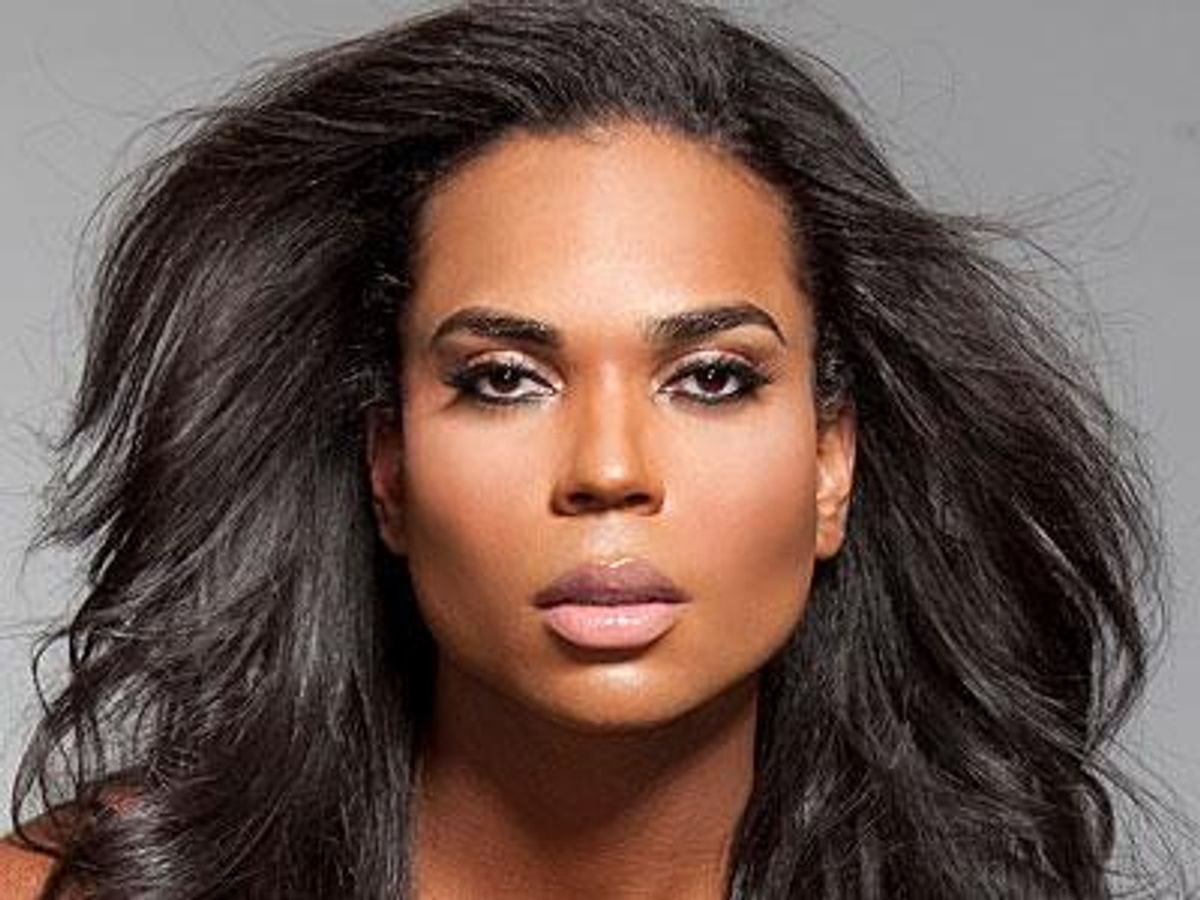

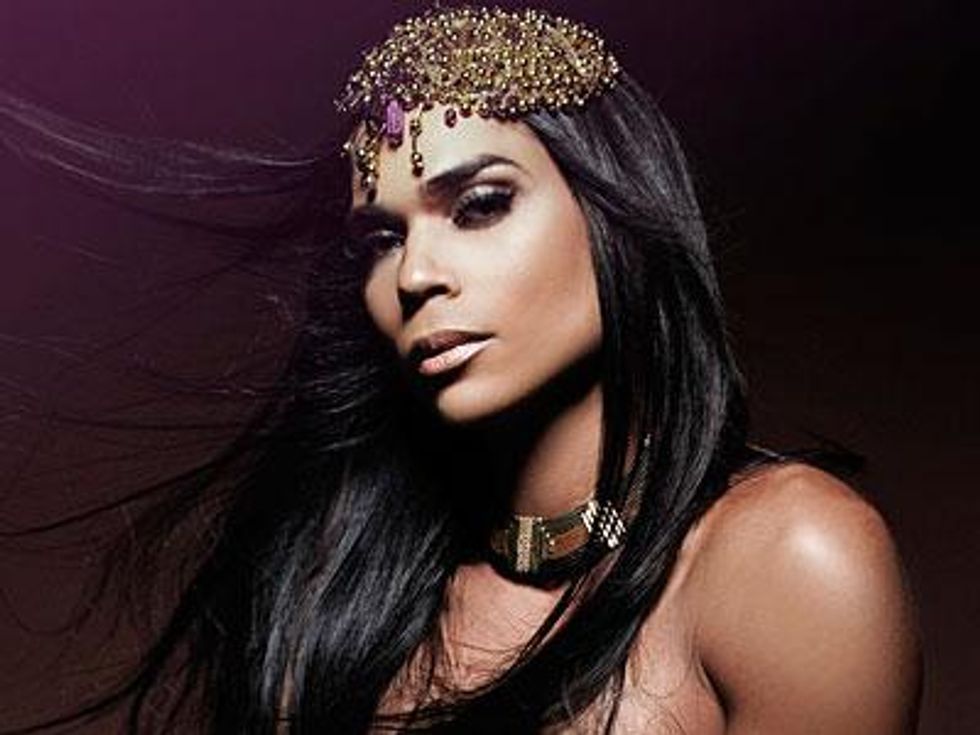 While BET did not comment for this story, the company did issue a public statement shortly after Scott filed suit. The network called its statement an "apology," but Scott doesn't buy it.
While BET did not comment for this story, the company did issue a public statement shortly after Scott filed suit. The network called its statement an "apology," but Scott doesn't buy it. 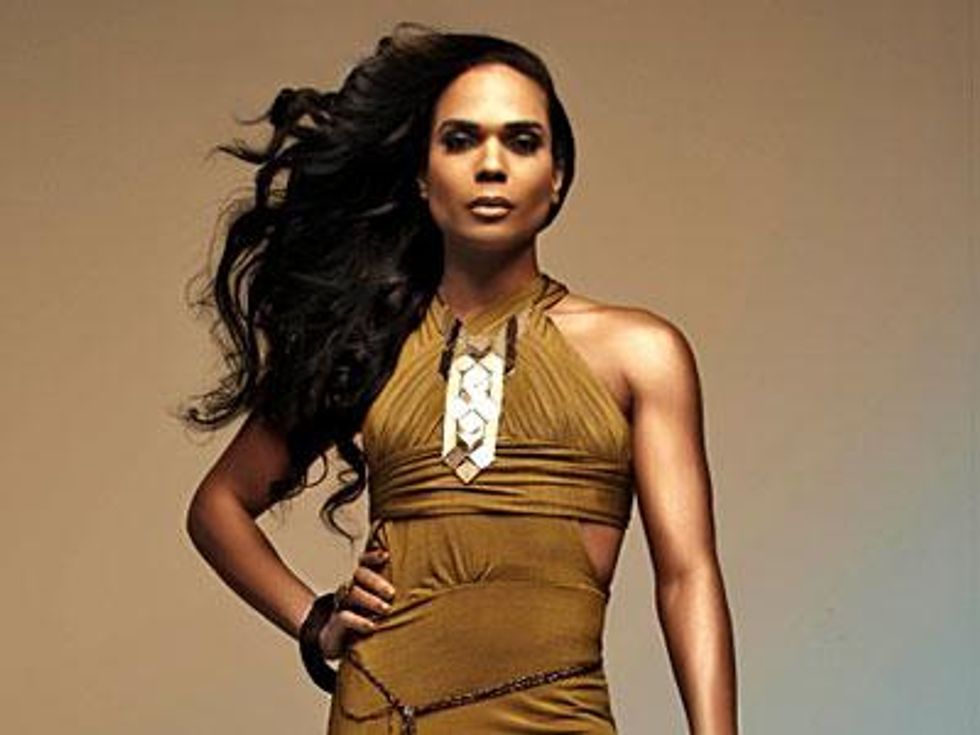 Scott worries about the implications this binary, transition-based narrative has on gender-nonconforming people of all ages. Noting that he's received grateful emails, tweets, and Facebook messages from fans relieved to be able to "say I'm like B. Scott," he's concerned the singular focus on transition doesn't create space for the diversity that exists within any group.
Scott worries about the implications this binary, transition-based narrative has on gender-nonconforming people of all ages. Noting that he's received grateful emails, tweets, and Facebook messages from fans relieved to be able to "say I'm like B. Scott," he's concerned the singular focus on transition doesn't create space for the diversity that exists within any group. 






























